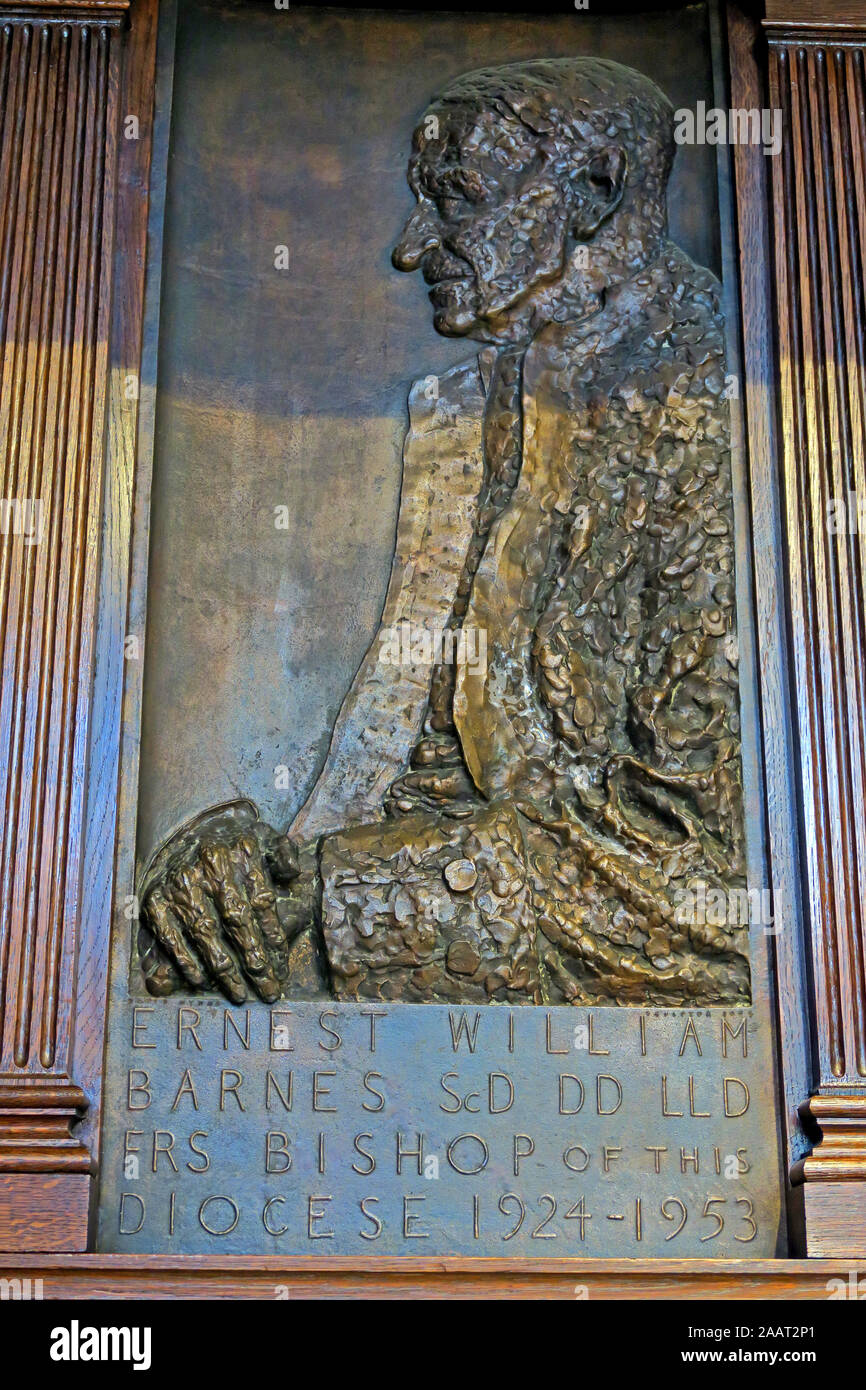Sculpture, Ernest William Barnes ScD DD LLD FRS Bishop of this Diocese 1924-1953, Birmingham St Philips Cathedral, Colmore Row, Birmingham B3 2QB

Image details
Contributor:
Tony Smith / Alamy Stock PhotoImage ID:
2AAT2P1File size:
57.1 MB (4.3 MB Compressed download)Releases:
Model - no | Property - noDo I need a release?Dimensions:
3648 x 5472 px | 30.9 x 46.3 cm | 12.2 x 18.2 inches | 300dpiDate taken:
19 October 2019Location:
Colmore Row, Birmingham, England, UK, B3 2QBMore information:
Ernest William Barnes FRS (1 April 1874 – 29 November 1953) was an English mathematician and scientist who later became a liberal theologian and bishop. He was educated at King Edward's School, Birmingham, and Trinity College, Cambridge. He was Master of the Temple from 1915 to 1919. He was made Bishop of Birmingham in 1924, the only bishop appointed during Ramsay MacDonald's first term in office. His modernist views, in particular objection to Reservation, led to conflict with the Anglo-Catholics in his diocese. A biography by his son, Sir John Barnes, Ahead of His Age: Bishop Barnes of Birmingham, was published in 1979. Barnes was perhaps the best known liberal bishop of his time, identified with the modernist or broad church movement. His episcopate was marked by continual controversy.[9] His book The Rise of Christianity (1947) attacked many Christian claims, including the Virgin Birth and the bodily resurrection of Christ. This led to calls that he should resign as a bishop. This Barnes refused to do. Earlier he had written "Should Such a Faith Offend?" (1927) and "Scientific Theory and Religion" (1933), and he was a contributor to 18 other books. His attack on Francis of Assisi as "probably verminous" drew a rebuke in verse from G. K. Chesterton. He was also politically active. In 1940, he lost a libel case in which he had attacked the Cement Makers' Federation for allegedly holding up the supply of cement, for their own profit at a time of great national need, in the construction of air-raid shelters. Undaunted by this set-back, Barnes returned to his accusations on the cement ring in a speech he delivered in the House of Lords the following year. He was an uncompromising pacifist, and spoke out against British participation in the Second World War. He also expressed eugenic views. Though a member of the Eugenic Society from 1924 until his death in 1953, it was not until after the 2nd World War that he openly argued in favour of voluntary sterilisation.